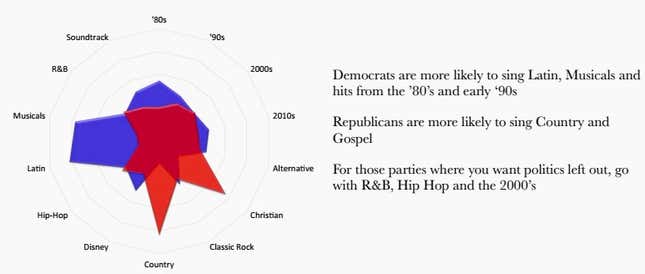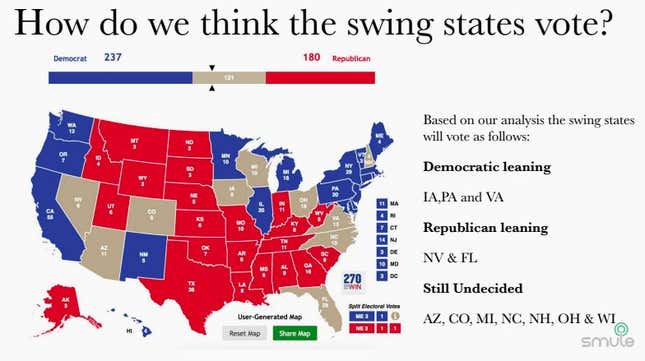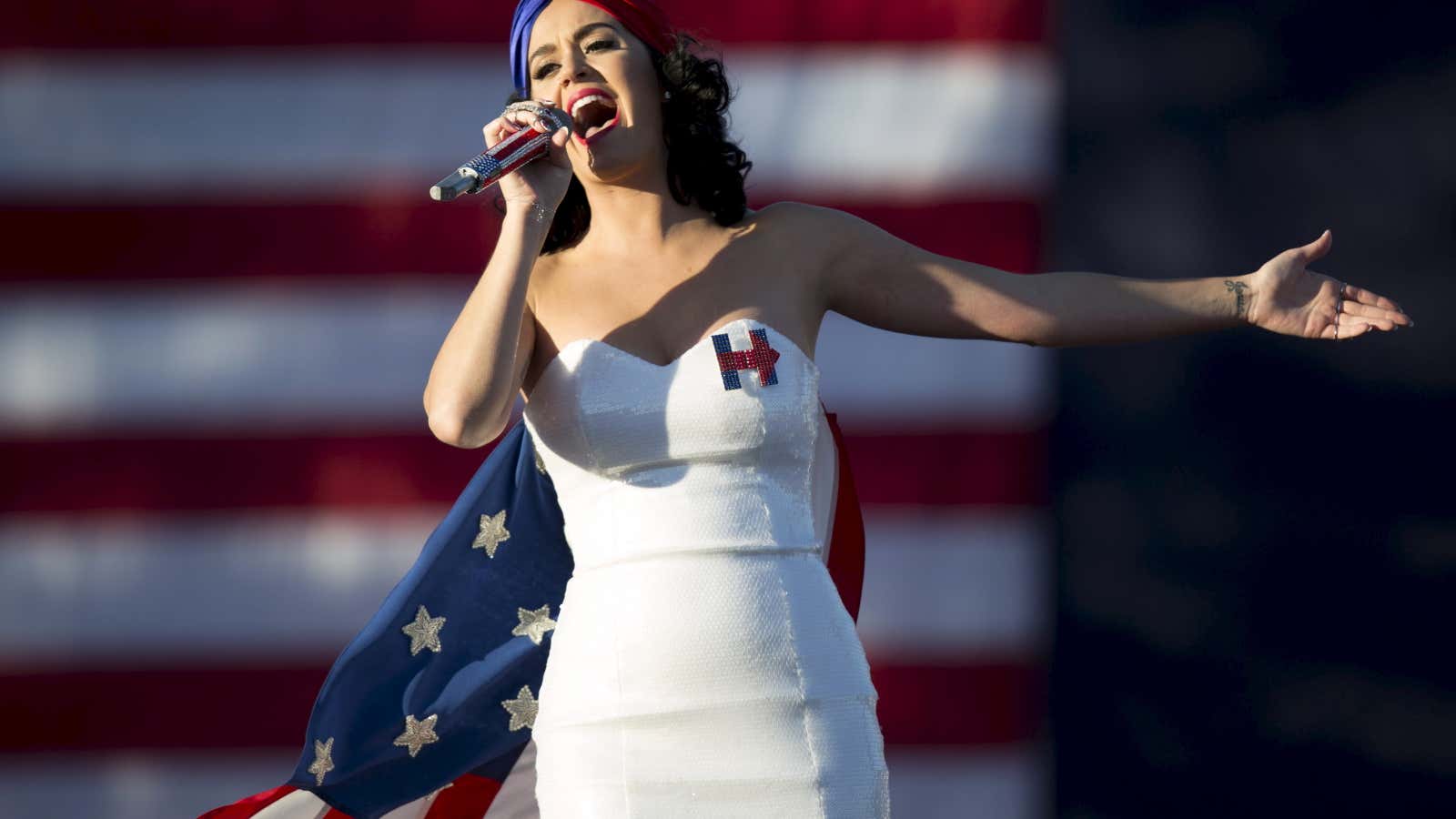Election 2016 has been saturated with music. Specifically: protest songs, anti-establishment music videos, and a whole lot of angry artists.
But there’s another big way music and politics can come together, according to Jeff Smith, an associate consulting professor of data science and music at Stanford and the CEO of Smule, a social platform that enables users to make and share music with each other. Specifically, that’s through analytics.
Smith, along with Smule’s VP of data and analytics Mark Dunning, recently attempted to see if people’s political preferences correlated with their musical taste. By overlaying geographic details with the genre tastes of the platform’s millions of users, they were able to identify clear patterns in people’s music interests and voting history from previous US presidential races—and, with that, they attempted to predict the outcomes of swing states in next month’s election.

After examining 100 million “sings”(user plays and performances of various songs) from across the Smule network, “we found blue states and red states had very consistent behavior across the genres of music they listened to,” says Dunning. For example, users who listened to Christian and country music were more likely to live in states that had voted for Republican candidates in past years, while those that listened to a lot of Latin music or songs from Broadway musicals had a higher likelihood of living in states that went Democrat in recent elections.
“From there, we looked at the [preferences of] people in undecided states and predicted how they were likely to vote,” says Dunning.

Their analysis yielded predictions fairly different to the majority of current polls. For example, Smule’s conclusions see Nevada and Florida leaning Republican, but early turnout data suggests the two swing states will end up Democratic this year. Of course, all pre-election-day calls have the chance of being wildly wrong, so time will tell how the music taste-based analysis stacks up to other polls.
Either way, the project opens the door to numerous other applications of musical taste and trends in the context of data science. People’s music interests could be examined to reveal—or predict—immigration trends, policy preferences, and more, Smith and Dunning say. Especially now that internet-based streaming has taken over the music industry, genre interests and user demographics are easier to collect than ever before.
While it’s no secret American politics are heavily influenced by personal biases like religion, the links between politics and other aspects of culture like music have been relatively unexplored. What’s more, those links could shed insights into the cultural behavior of swing states, whose demographics tend to not be well-studied.
Says Smith, “We’re not Gallup. We’re not running a poll. We’re music data scientists who have a ton of data and are using it to better inform us of how our country is structured in terms of culture. Literally looking at a couple of genres of music allows you to have an idea of how the middle of cultural demographic is more aligned.”
And as Nov. 8 looms, it’s becoming all the more clear that the choices of this cultural “middle” are indeed what will shape the next four years.
